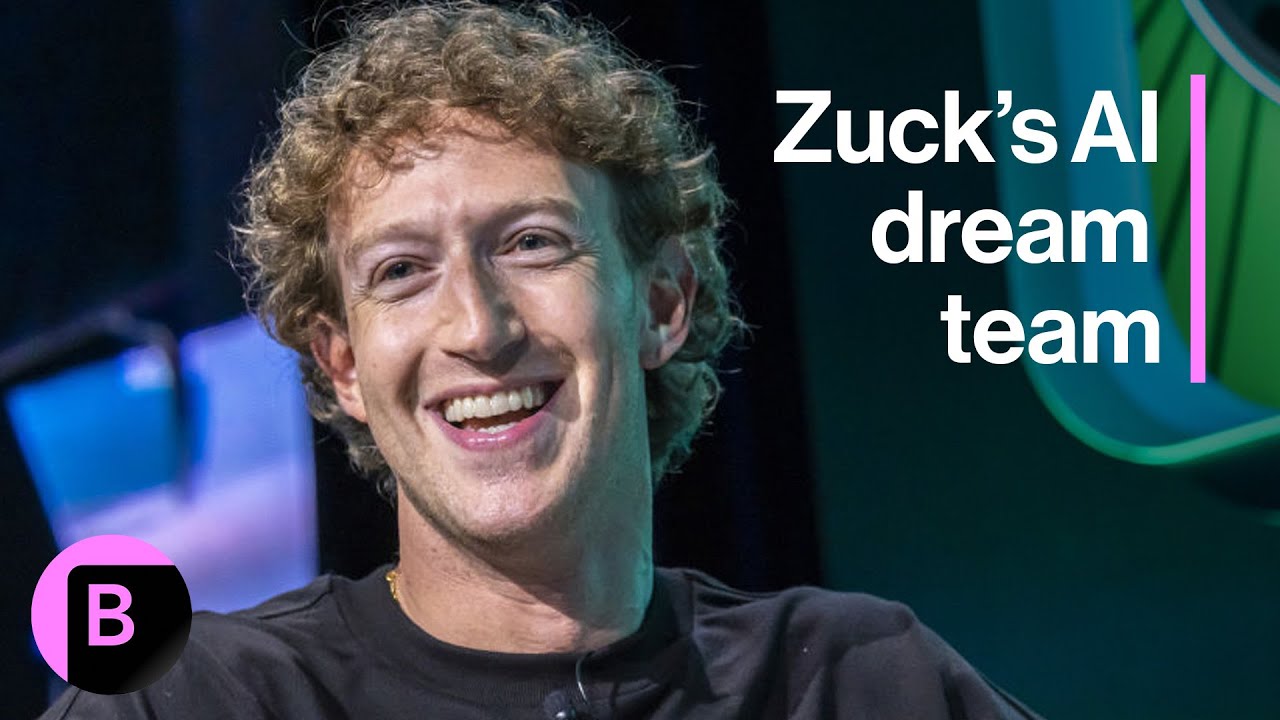The video explains how Mark Zuckerberg is leading Meta’s efforts to develop artificial general intelligence by assembling a top-tier “superteam” and investing heavily in human-in-the-loop AI training through Scale AI. Despite setbacks like the underperformance of their Llama 4 model, Meta aims to become a leader in open-source AI, facing strong competition from companies like Google and OpenAI while recognizing that achieving true AGI requires continued innovation and overcoming significant technical challenges.
The video discusses Mark Zuckerberg’s strategic efforts at Meta to develop artificial general intelligence (AGI) by assembling a team of top experts. Zuckerberg’s initiative reflects a clear ambition to push the boundaries of AI capabilities, emphasizing the importance of human expertise in advancing this complex technology. The focus is on creating a “superteam” capable of overcoming current limitations and achieving breakthroughs in AI development.
A key aspect of Meta’s approach involves significant investment in Scale AI, a company specializing in training AI models through human-in-the-loop processes. This highlights Meta’s recognition that human input remains crucial in refining and training AI systems. By leveraging human intelligence, Meta aims to enhance the accuracy, reliability, and sophistication of its AI models, positioning itself as a leader in the open-source AI ecosystem.
Meta’s overarching goal is to become the dominant force in open-source AI, providing foundational models that other companies can build upon. This strategy underscores their intent to establish a robust platform that supports innovation across the industry. However, Meta faces stiff competition from other tech giants like Google, with their Gemini project, and OpenAI’s ChatGPT, which are also advancing rapidly in the AI space.
Despite these ambitions, Meta’s recent foundation model, Llama 4, did not meet expectations, either internally or among external developers. This setback illustrates the challenges faced by AI developers in achieving the desired performance and sophistication levels. It also signals that the industry as a whole may be experiencing a slowdown or “niggle point” in the pace of AI evolution, with significant technical hurdles still to overcome.
Overall, the video emphasizes that the path to true AGI remains complex and requires continued innovation from highly skilled engineers. Meta’s strategic investments and team-building efforts reflect a recognition that human expertise and persistent research are essential to making the next leap forward in AI technology. The industry remains highly competitive, and Meta’s success will depend on its ability to innovate and overcome current limitations in AI development.
